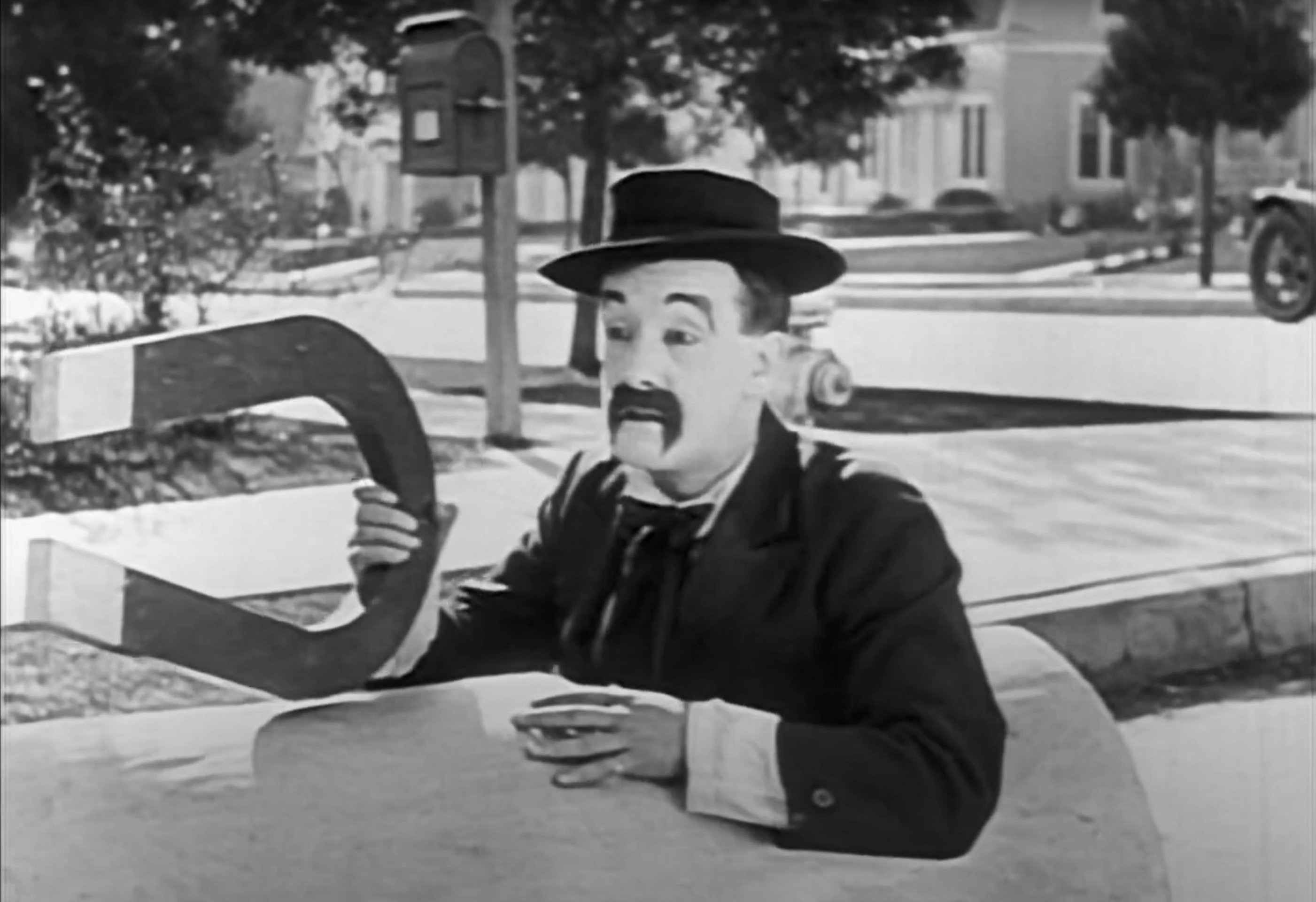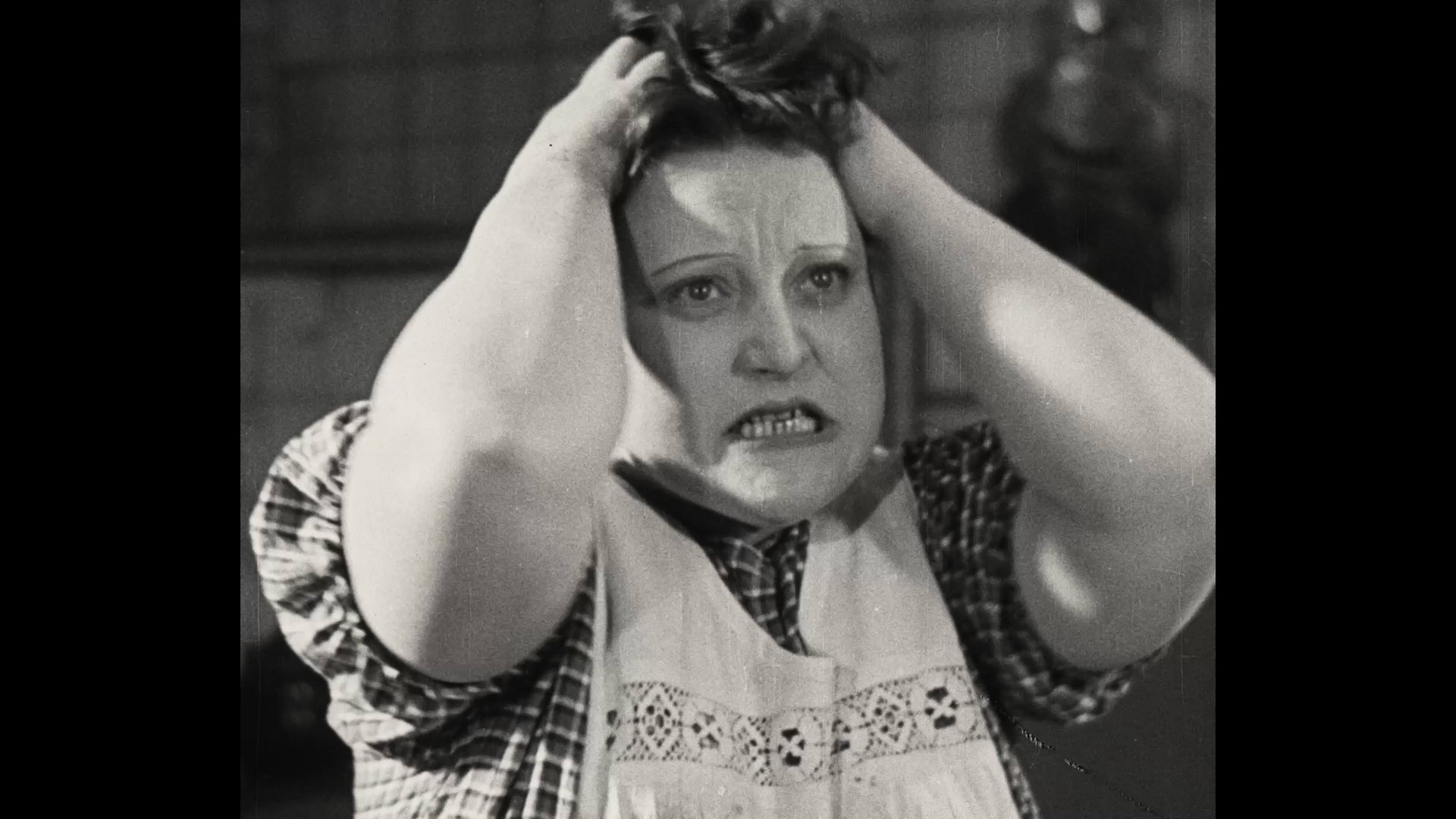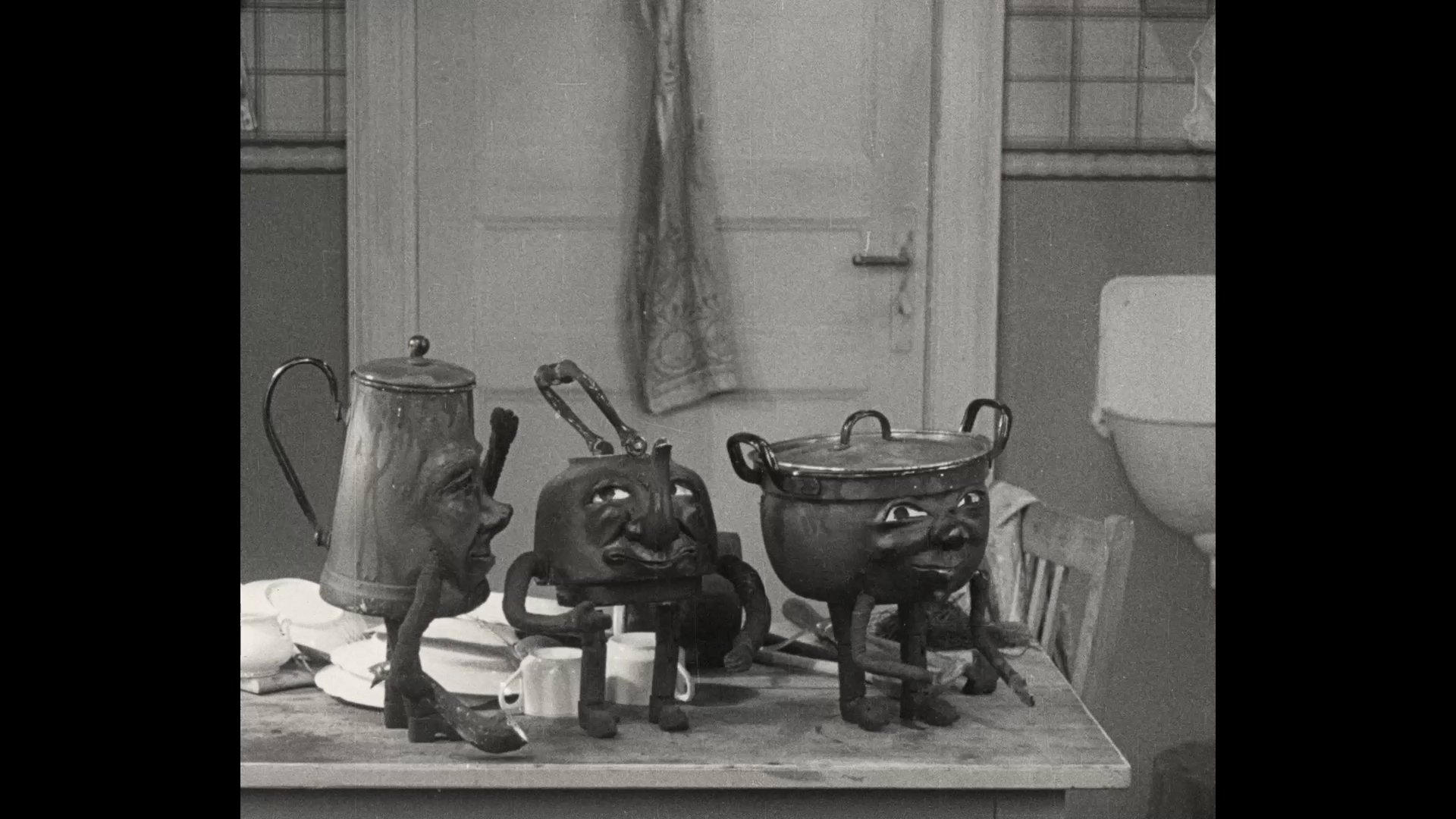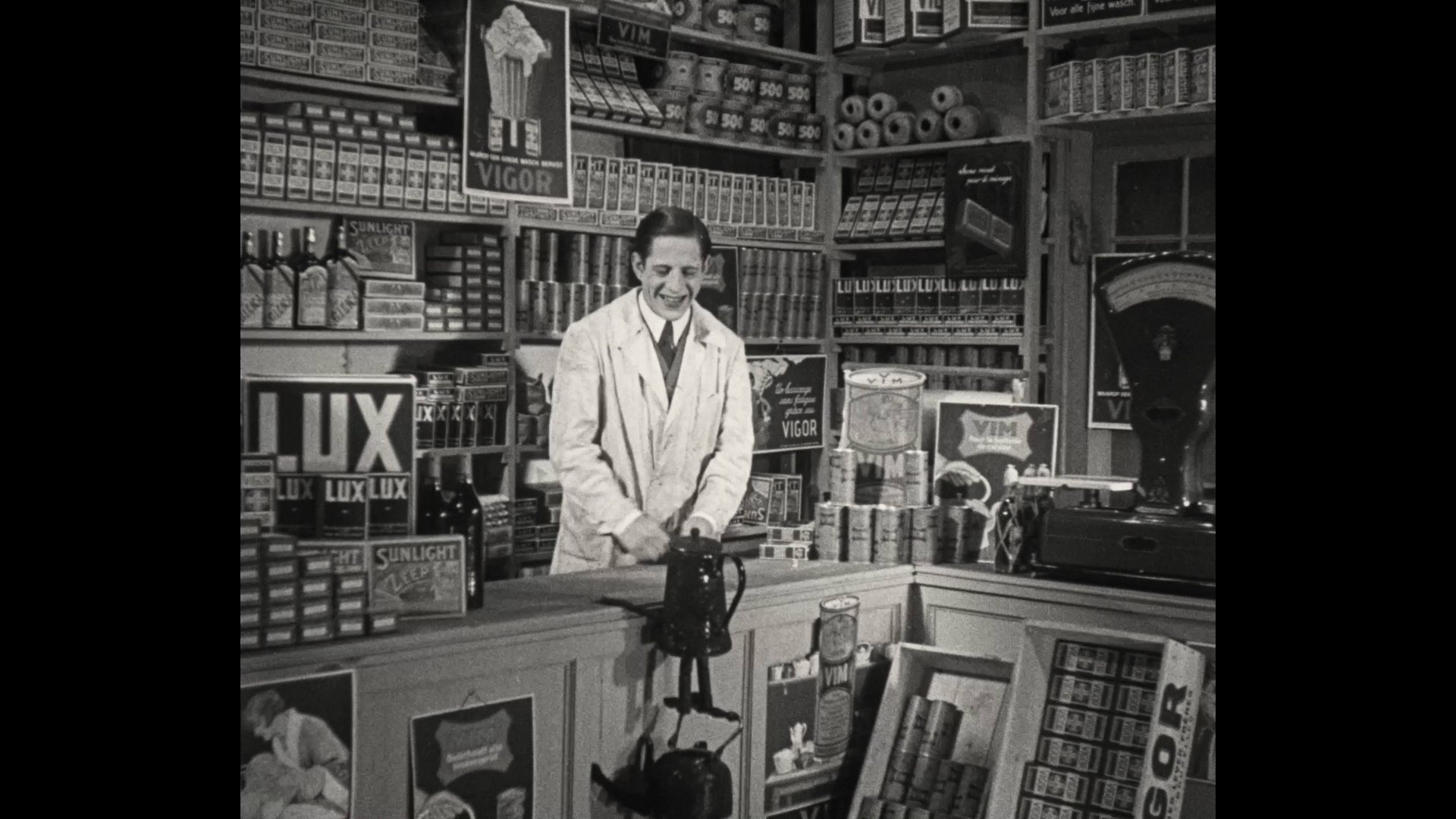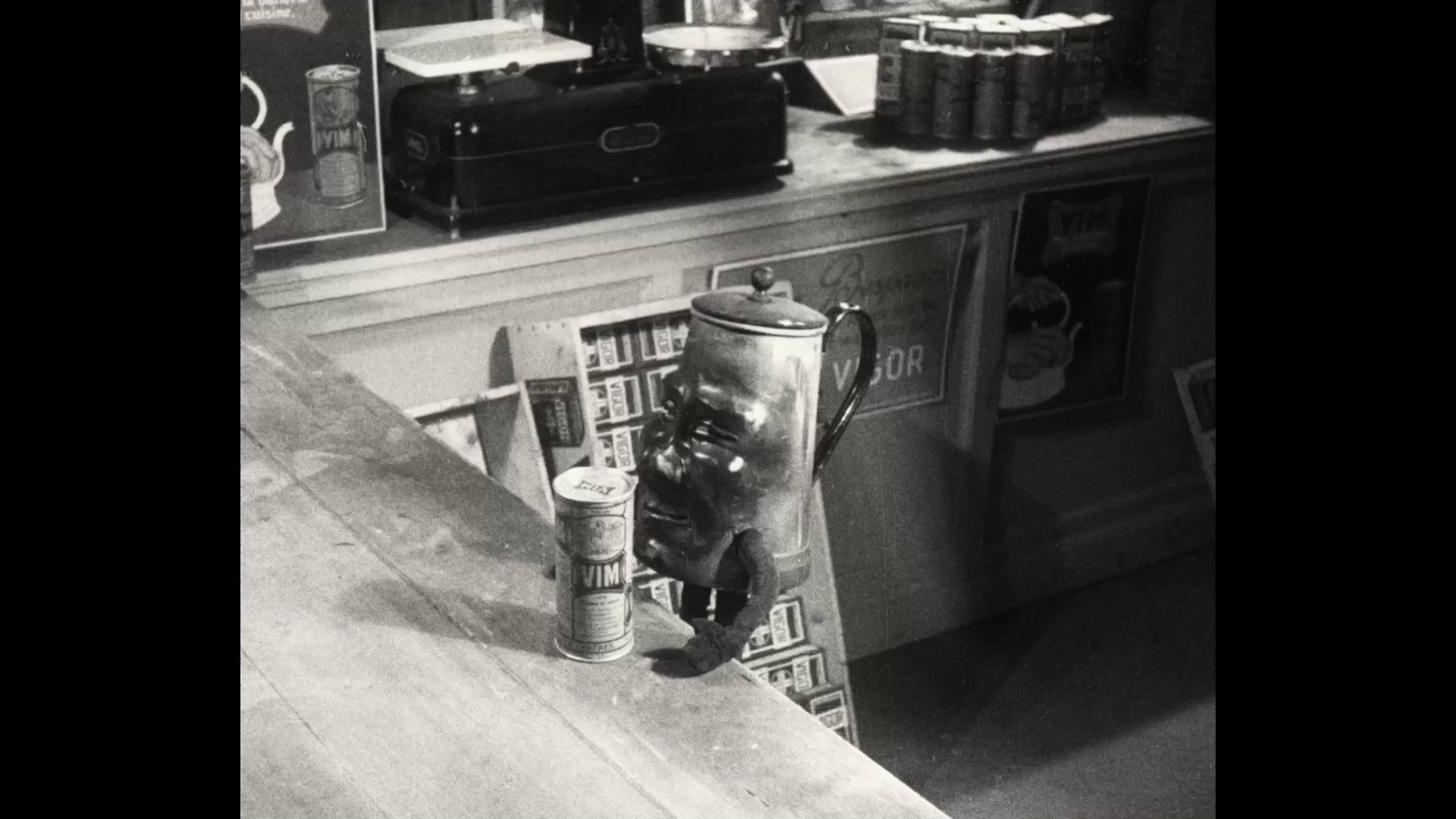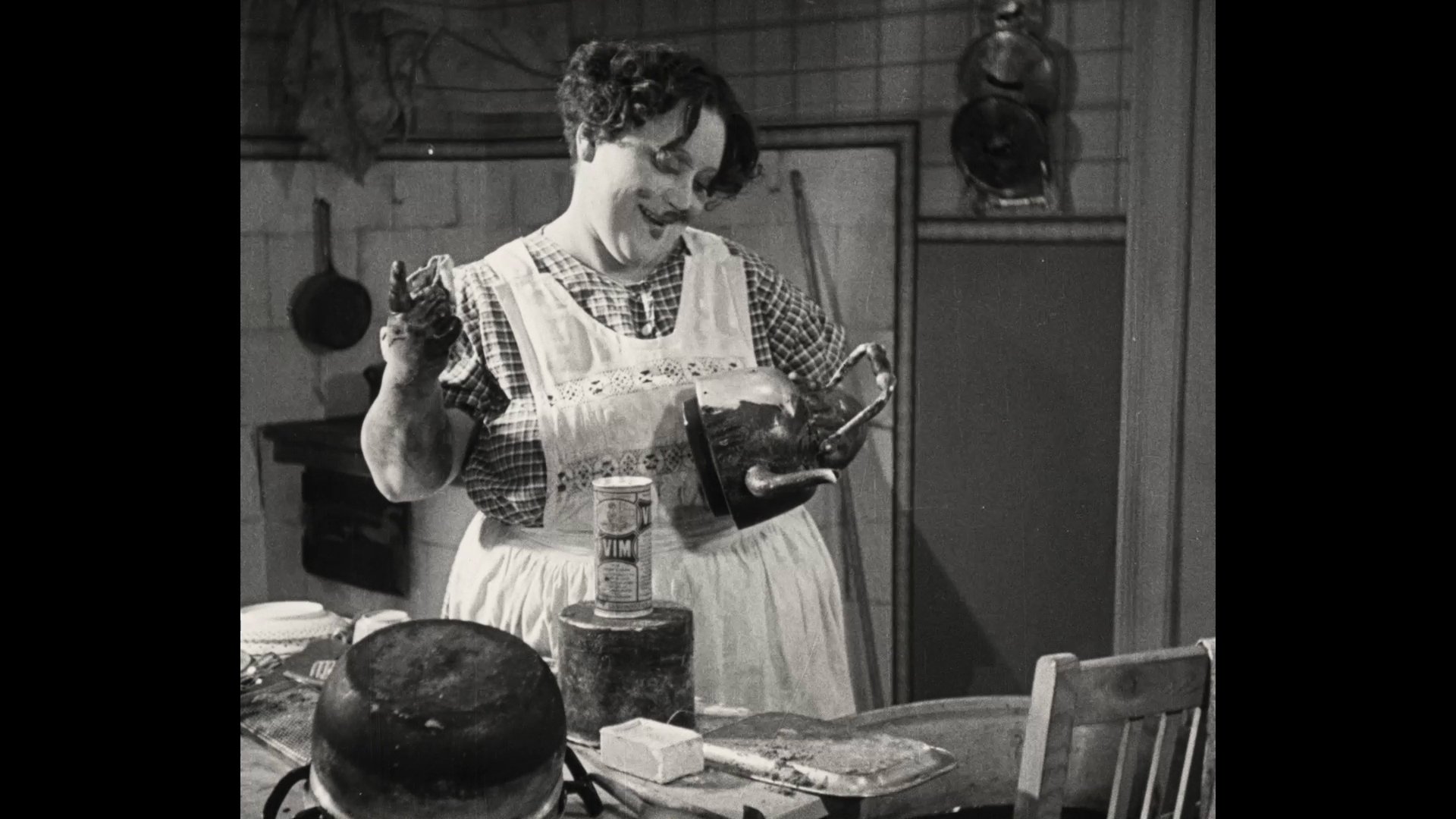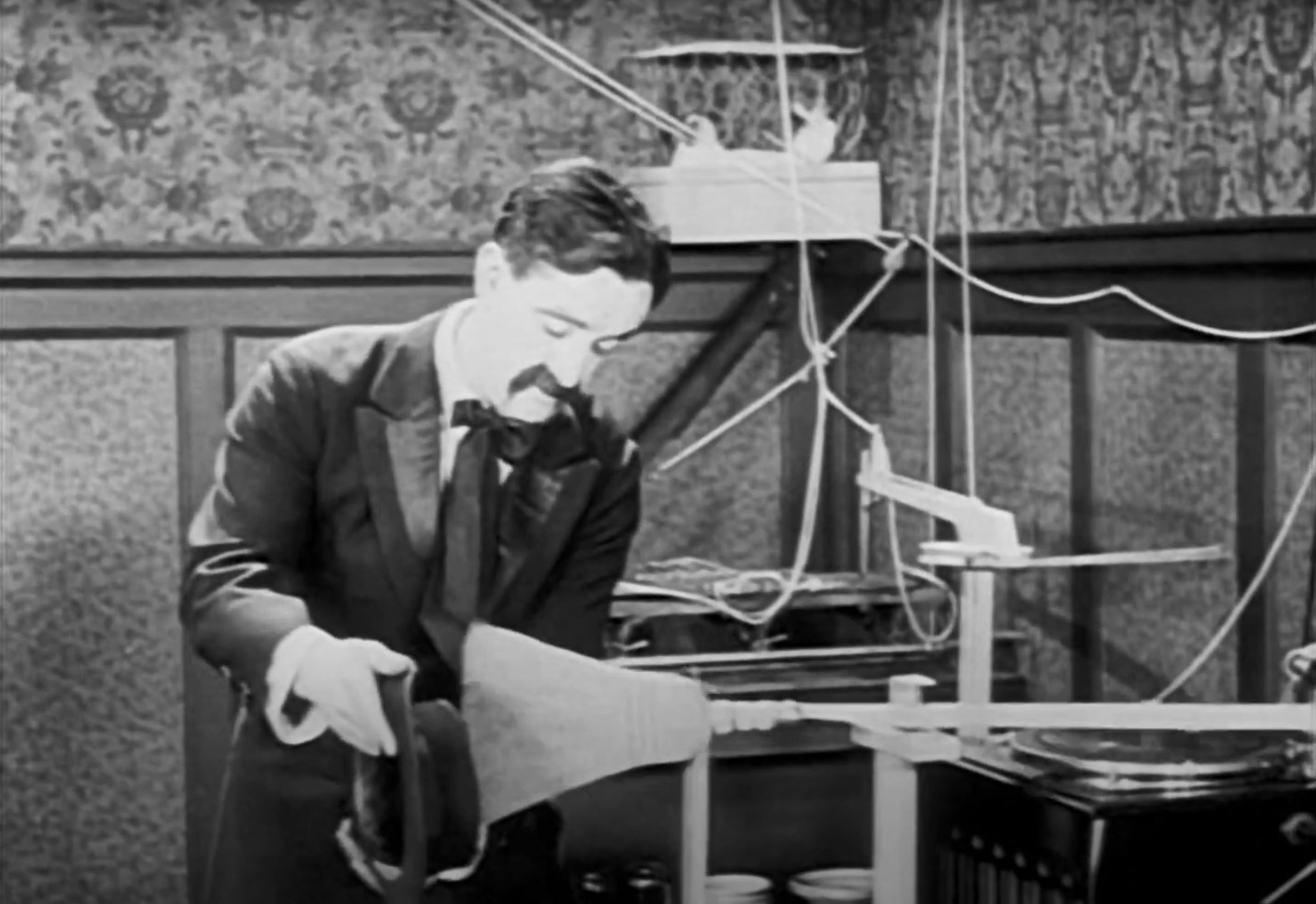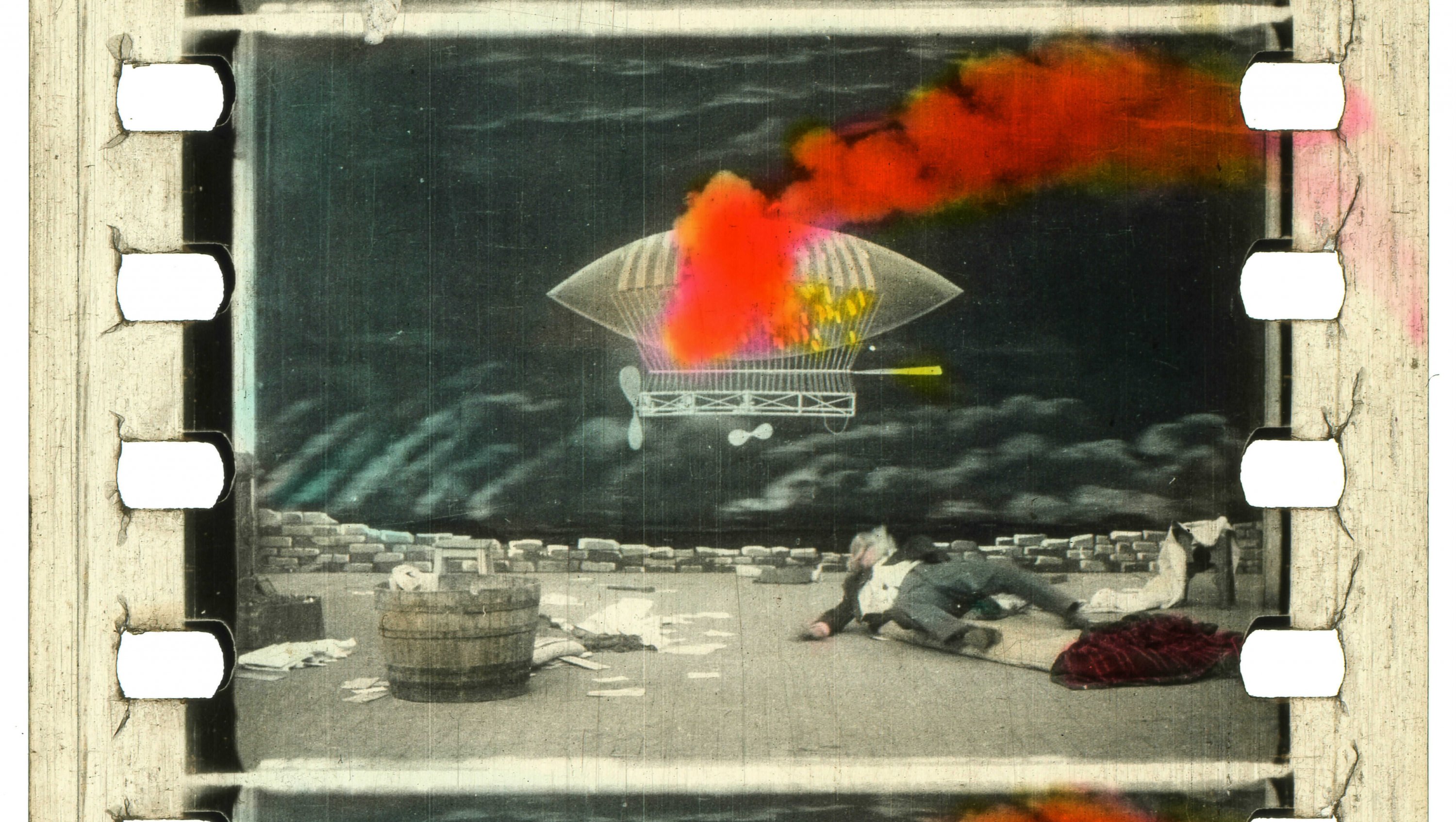Mad Inventors – a collection of short films (II)
The Inventor Crazybrains and His Wonderful Airship
(Le dirigeable fantastique)
France 1906, 3'
Director and cast: Georges Méliès
Producer: Star-Film
DCP
Source: EYE Filmmuseum
An inventor is developing a design for an airship. He then dances for joy before falling asleep. Then, extraordinary guests appear in his workshop, and the sketched ship floats into the air...
An image combining elements of Georges Méliès’ favorite and most characteristic genres: science fiction film, fantasy, and fairy tale. Here, the director employs his signature cinematic tricks, and the use of the dream motif marks this remarkable tale as an early example of oneiric cinema. The film—typical of the French master’s productions—is hand-colored.
By Katarzyna Wajda
Countryside Radio
(Radio auf dem Lande)
Germany 1928, 5'
Director: Svend Noldan
Producer: Pinschewer-Film AG
DCP, 2K, B&W
Source: Deutsche Kinemathek
An animated commercial series produced in 1928 for the Berlin Radio Society by Julius Pinschewer, who became famous for combining marketing needs with trick film and various animation techniques. Countryside Radio portrays rural folk who, thanks to the radio installed in their homes, manage to escape all kinds of misfortunes, such as bad weather, sickness of their animals, and dishonest city folk, while also having access to a new form of entertainment.
By Marta Stańczyk
Automatic Moving Company
(Le garde meuble automatique)
France 1912, 7'
Director: Roméo Bosetti
Producer: Pathé Frères
DCP, 2K, B&W
Source: EYE Filmmuseum
People surround themselves with furniture, using it to furnish their homes – but does furniture need people? Automated Moving Company is proof that objects have a life of their own (which is also evident from the Kitchen Rebels film, featured in this series). This trick film uses stop-motion animation, showing the fascination with automating daily life present at the time, aimed at making people’s lives simpler. Discussions on this topic continue to this day, with admiration for technological innovations still colliding with concerns regarding the increasing redundancy of human labor.
At the same time, Automatic Moving Company amazes with the technological possibilities of the cinema of its time, developing the earlier project Mobilier fidèle (1910), on which Roméo Bosetti collaborated with Émile Cohle, a pioneer of animated film. Bosetti garnered recognition primarily as the first head of the Pathé Comica branch, where he produced burlesque series featuring Leontine and Gavroche.
EYE Filmmuseum restored the nitrate film found at the Archive Film Agency in England.
By Marta Stańczyk
Kitchen Rebels
(Küchenrebellen)
Germany 1928, 4'
Director: unknown
Producer: Pinschewer-Film AG
DCP, 2K, B&W
Source: Deutsche Kinemathek
Aside from Countryside Radio, this is yet another artistic commercial coming from Julius Pinschewer featured in this section. The commercial advertises a universal surface cleaning powder, but above all, it showcases a remarkable use of animation. Kitchen Rebels tells the story of a housewife struggling with household work and having a clear disadvantage on that front. At some point, a rolling pin, a kettle, and a pot, desperate about their appearance, decide to take matters into their own hands. They rush off to the rescue in this live-action film merged with puppet animation.
By Marta Stańczyk
Egged On
(Egged On)
USA 1926, 23’
Director and screenplay: Charles R. Bowers, Harold L. Muller, Ted Sears
Cast: Charles R. Bowers
Producer: Bowers Comedy Corporation
DCP, 2K, B&W
Source: FPA France
Charley invents a machine that makes eggs unbreakable. Constructing it from various elements, including somebody's cartwheel, he sparks a lot of confusion, but the end justifies the means. The invention attracts the interest of a major export company, which sends an agent to Charley. However, it turns out that acquiring the necessary eggs for testing the machine is not that easy...
First in a series of short, original comedies by Charles Bowers, as well as his first and most cherished screen performance as the young (and often unpredictable) inventor with his complicated machine. Its funny slapstick jokes, film tricks, spectacular animation elements (it was with them that Bowers’ filmmaking career had started), all topped with a hefty dose of poetic absurdity, are the hallmark of his rediscovered creativity.
By Katarzyna Wajda
It's a Gift
(It’s a Gift)
USA 1923, 13’
Director: Hugh Fay
Cast: „Snub” Pollard, Marie Mosquini, William Gillespie, Wallace Howe
Producer: Hal Roach Studios
8mm (reduced from 35mm), B&W
Source: FPA Classic
A group of oil magnates is looking for new business strategies. They plan to establish a collaboration with Pollard, an eccentric innovator, who reportedly created a non-flammable substitute for gasoline. The invited innovator leaves his apartment full of technological (yet often nonsensical) ideas and arrives at the venue in a quite unconventional way.
A slapstick comedy fitting into the popular trend of mad inventor films of the time, with its key gag featuring the magnetic horseshoe firmly established in the genre's history. It is the most famous one out of the whole series of shorts produced by Hal Roach featuring "Snub" Pollard, a popular film comedian of the 1920s with distinctive long, drooping mustaches, who replaced Harold Lloyd at the studio.
By Katarzyna Wajda
The films will be accompanied by the music of Asi Mina
SUNDAY | SEPTEMBER 21 | 11:00 | SALA STOLICA
introduction: educator
Translation of the educator's announcement from Polish Sign Language


